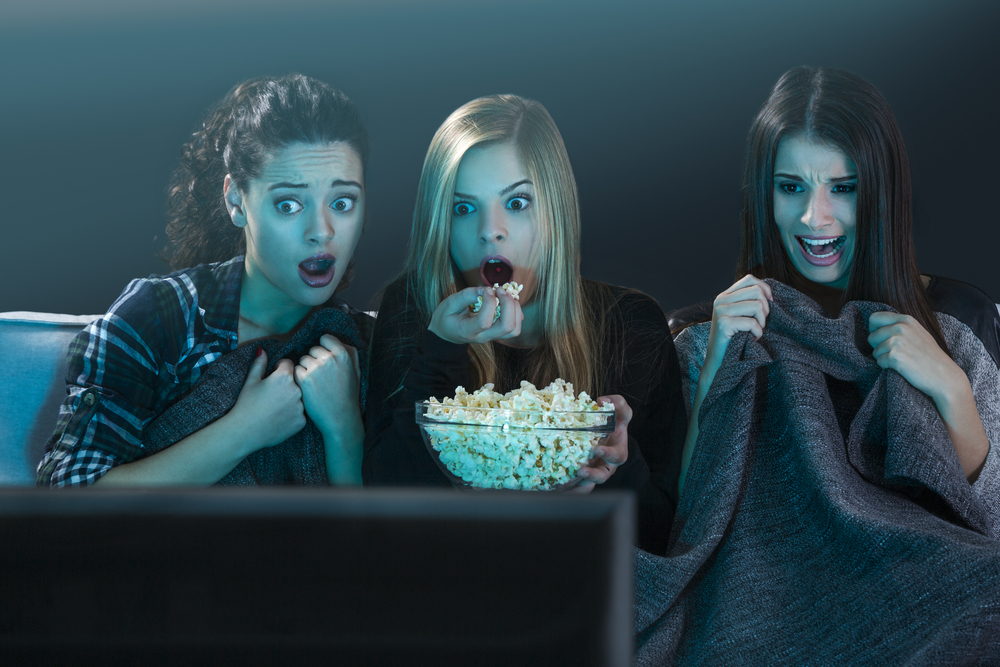
As odd as it may sound, society has often turned to horror movies in times of trouble so they can deal with anxiety and fear. The original Dracula and Frankenstein films were vastly popular entertainment during the Great Depression, and horror films also had a big comeback after the real-life horrors of tragedies like 9/11.
Now, NDTV reports that a new study, conducted by the University of California, Irvine, has examined how our minds process fear and anxiety through the viewing of horror films, and this research could provide a new key in treating people with mental health issues.
This study examined how the amygdala and hippocampus (the emotional and memory parts of the brain) reacted to horror. As Jack Lin, a professor of clinical neurology, says, “We ultimately want to use this for therapy. We want to know how the brain operates at a circuit level.”
During this study, nine people were shown scenes from horror films, with their brain activity being recorded with electrodes.
This research could help people deal with anxiety with the same kind of deep brain therapy that is used to help treat Parkinson’s disease.
When the brain receives a scary image, it sends the prominent portion of the image to the emotional part of the brain, which figures out how important it is to the body’s basic survival. Then the information is flagged and sent to the memory part of the brain. This change only occurs in the brain when an individual sees something scary.
Horror films can also serve to make your anxieties and fears seem tame in comparison, which is another reason why fans may find them therapeutic.
Dr. Mathias Clasen, an assistant professor at Aarhus University in Denmark who has been studying horror and psychology for a number of years, told Broadly, “Exposure to horror films can be gratifying when the negative emotions caused by the film are manageable. I’m not surprised to learn that some anxious individuals find horror films therapeutic. The genre allows us to voluntarily—and under controlled circumstances—get experience with negative emotion.”
